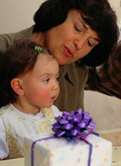More women delaying first pregnancy, CDC reports

(HealthDay)—New U.S. government data confirms the trend: the average age when women have their first babies continues to increase.
For the last four decades, women, on average, have been having first babies later in life than ever before. In 2012, the latest year for which data are available, there were more than nine times as many first births to women 35 and older than there were 40 years ago. Among younger women— those under 30, and, particularly, those under 20 years old—first births have actually declined.
"We've been seeing this for a while now, but it's somewhat breathtaking to see how broadly it has occurred among both age groups [those 35 to 39, and those 40 to 44]," said T.J. Mathews, a demographer with the National Center for Health Statistics (NCHS), part of the U.S. Centers for Disease Control and Prevention, which issued the report May 9 in the NCHS Data Brief.
The data was compiled from U.S. state birth certificates nationwide, taken from the Natality Data File of the National Vital Statistics System. The analysis includes data on all births occurring in the United States, including maternal and infant demographics, and health characteristics for babies born in the country.
The findings suggest possible medical and lifestyle implications, experts said.
The fact that more first births are occurring among women 35 and older suggests family sizes will be declining, since the ability to conceive drops with age, noted Mathews.
"The number of births delayed might mean you're really not going to have three children," Mathews added.
One medical expert agreed. "After 34, your chances of getting pregnant spontaneously, without the help of reproductive endocrinology or fertility services, exponentially decline," said Dr. Catherine Herway, assistant director of maternal-fetal medicine at Staten Island University Hospital, in New York City.
Older women are also at greater risk of having complicating health issues such as diabetes, high blood pressure or heart disease when they become pregnant, noted Herway. They also are at higher risk for pre-eclampsia, a condition of pregnancy characterized by high blood pressure and protein in the urine.
On a positive note, Elizabeth Gregory, director of the women's gender and sexuality studies program at the University of Houston, thinks children of relatively older parents probably fare better. "For kids getting more mature and more educated parents, there are demonstrable outcomes, such as living at a higher economic level," she said.
Gregory, who has written a book on the benefits of later motherhood, noted that for each year of delay a college graduate makes, she will be likely to earn more. "On average, her long-term salary will increase, so over her career her salary will be twice what it would have been if she'd started at 22. [She can expect] about a 12 percent gain in long-term salary per year [of delaying pregnancy]," she said.
Key findings of the data analysis include:
- For women 35 to 39, first birth rates rose sixfold from 1973 to 2006 (from 1.7 to 10.9 per 1,000 women).
- For women 40 to 44, the rate increased more than fourfold from 1985 through 2012.
- First birth rates rose among older women of all races and origins. Among those 40 to 44, increases in first birth rates rose 171 percent among blacks and 130 percent among whites.
- For Asian/Pacific Islanders in both age ranges, the rate of first birth in 2012 was almost double that of the next highest group. "They're having first births at an older age than other population groups," noted Mathews.
There were, however, geographical variations.
Some states saw a greater increase in first births among older women. For example, the first birth rate for women 35 to 39 in Washington D.C., New York, North Dakota, Oregon, Rhode Island, South Dakota, Washington, and Wyoming rose at least 40 percent from 2000 to 2012.
During the same time period, the first birth rate for women 35 to 39 increased 30 to almost 40 percent in nine states, according to the report. Only four states saw no increase in first births among this age group: Arizona, Idaho, Mississippi and Oklahoma.
And the first birth rate for women aged 40 to 44 rose at least 60 percent in Washington, D.C., Minnesota, Nebraska and South Carolina from 2000 to 2012, the investigators found.
What should women consider as they weigh when, or if, to have children?
"The risk of infertility is probably the most important thing people need to know. They should understand that if they're delaying childbirth beyond age 34, there's a very real possibility they may need in vitro fertilization, and that's not an easy thing to go through," said Herway.
She also cautions women to realize that as they age, they may not be able to get pregnant using their own eggs. "If they want to get pregnant [after 34], some may not be able to do it with their own genetic material," she added.
Obstetricians and gynecologists refer to pregnancies among women older than 34 as "advanced maternal age" or "geriatric" pregnancies, said Herway. "It doesn't sound good; you're just 34 and you're already considered advanced age."
Herway, who noted that she herself hasn't found time yet to have children, warns women against waiting too long to have their first child.
"We have so many things I can test for and medications I can give you, but when it comes down to having children, Mother Nature allows us to have babies at a certain age for a reason. I don't think we're smarter than Mother Nature," Herway said.
More information: Learn more about infertility issues from the U.S. Centers for Disease Control and Prevention.
Copyright © 2014 HealthDay. All rights reserved.
















